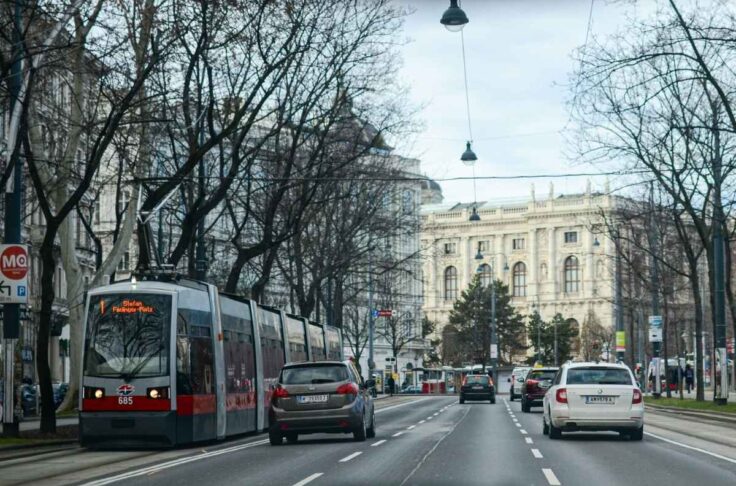Insights Interview on Car Sharing in Taiwan: Vol. 2 with GoSmart
Summary
Taiwan has a striving car sharing scene. We interviewed Johnny Chiang, Manager of the Car Rental Business at Taiwanese car sharing operator GoSmart, about how GoSmart works, local parking challenges, their growth plans and new impulses, and the role of AI in car sharing. GoSmart, a car sharing service established by CarPlus, benefits from CarPlus’s 40-year history in the vehicle rental industry. CarPlus currently offers leasing, short-term rental, shared, and subscription rental services. Its parent company, Yulon Group, is a major automotive manufacturer and retailer in Taiwan.

The Asian car sharing market is complex, featuring a diverse range of business models implemented on the streets. Operators employ various strategies, such as station-based, peer-to-peer, and sometimes free-floating car sharing, to address distinct use cases and offer different services. Especially the East and South East Asian car sharing markets are global key markets and offer different solutions and implementations than European or North American operators. To address and explain some of these complexities, INVERS has published its white paper on “Car Sharing in East and South East Asia”. This 50-page report helps car sharing operators to quickly understand key market dynamics, insights, and trends.
Table of Contents
How does GoSmart’s car sharing system work and why is it the right business model for Taiwan?
GoSmart adopts a station-based and designated area roadside free-floating system. We also apply a flexible policy that cars are deployed between shared vehicles and rental cars at retail locations. The majority of the shared cars are operated under a station-based model due to the reasons below.
- High Urban Density: Taiwan’s urban areas have a dense population, making a station-based system more effective than a free-floating model.
- Limited Parking Space: A station-based car-sharing system helps better manage parking spaces since vehicles are returned to specific locations.
- Infrastructure Compatibility: Taiwan’s existing public transport and urban planning support a station-based model, facilitating seamless integration with daily commuting.
- Regulatory Constraints: Due to the relative scarcity of roadside parking spaces, the availability of roadside pick-up and drop-off depends on local government policies.
How do you overcome the challenge of access to scarce parking space in dense cities? How do you deal with the high cost of parking in Taiwanese cities?
Acquiring scarce parking spaces:
- Designated stations: By using specific stations for vehicle pick-up and drop-off, GoSmart reduces the demand for roadside parking.
- Strategic locations: Stations are set up in high-demand areas, such as near public transport hubs, schools…etc. reducing the need for extensive parking.
Addressing high parking costs in Taiwanese cities:
- Collaboration with parking facilities: Partnering with local parking lots to provide designated spaces and lower costs.
- Dynamic pricing model: Implementing pricing strategies that encourage users to return vehicles during off-peak hours, reducing congestion and parking costs.
What’s GoSmart’s growth route? Which strategic and tactic impulses are you working on?
GoSmart has been deeply rooted in the Taiwanese market for many years. In 2022, it took the lead in promoting a vehicle condition registration system, allowing consumers to avoid renting dirty vehicles. Through the app, it reveals the interior and exterior conditions of the vehicles in advance, enabling consumers to check the cleanliness and quality before making a rental decision. Additionally, the cleanliness status of the vehicles is clearly marked for consumer selection.
In terms of station expansion, GoSmart has rapidly expanded from its focus on the major metropolitan areas of Taipei, New Taipei City, and Taoyuan to the high-speed rail corridors, providing convenient services where users can “pick up a car immediately upon exiting the high-speed rail station and return it freely.” It has also expanded to Yilan, Hualien, Taitung, Kaohsiung, Taichung, and Tainan, connecting daily life circles and making car-sharing more widespread.
Starting in 2023, GoSmart has integrated AI technology to simplify registration processes. We are actively innovating digital services by using facial recognition to verify identities, shortening the waiting time for consumers who need to undergo manual identity verification. In just 20 seconds, it can determine whether a user qualifies to rent a car, allowing car rentals to not only be “rent-and-return” but also “instant approval and rental.”
Speaking of AI, how is the recent AI trend affecting car sharing in Taiwan?
- Optimizing Fleet Management: AI algorithms predict demand patterns, helping efficiently allocate vehicles to various stations.
- Enhancing User Experience: AI-driven chatbots and customer service tools provide instant assistance, improving user interactions.
- Data Analysis: AI analyzes user behavior to tailor services and enhance overall experience. We also apply CDP tools for automated marketing.
Further insights into the Asian car sharing market
Thank you, Johnny, for sharing your expert insights.
For more information and interesting findings about Asian car sharing, we encourage readers to check out our 50-page white paper on “Car Sharing in East and South East Asia” with more expert interviews as well as insights from key markets in Japan, South Korea, Taiwan, and Singapore. To discover more from GoSmart, please visit their website.


